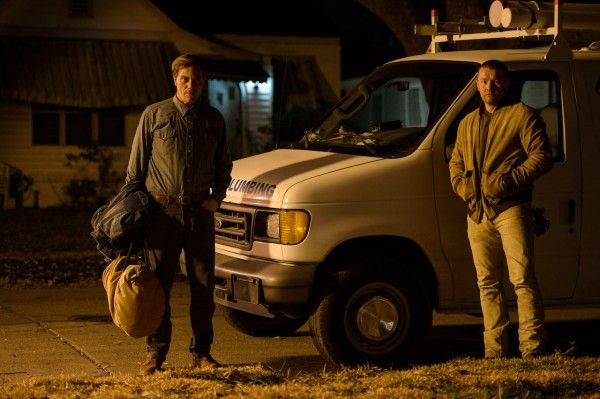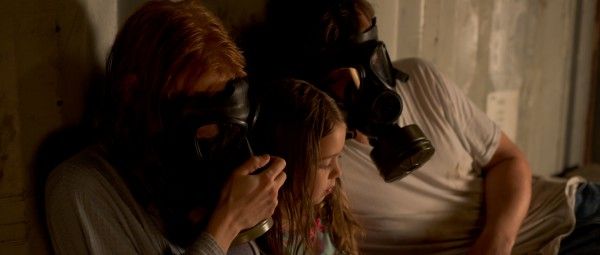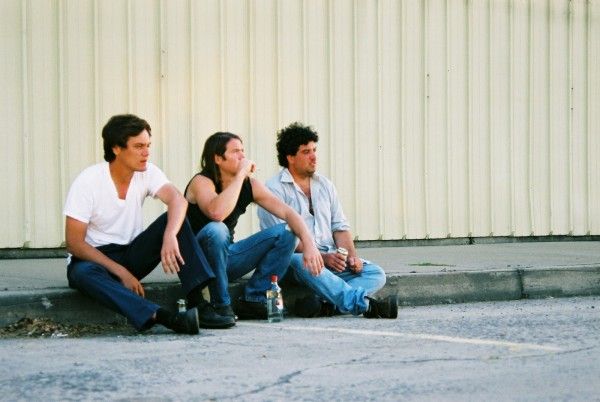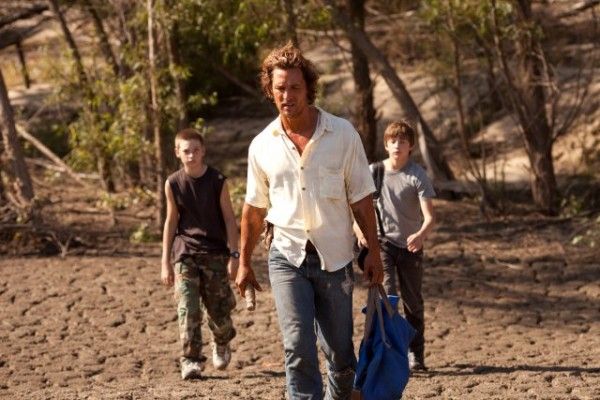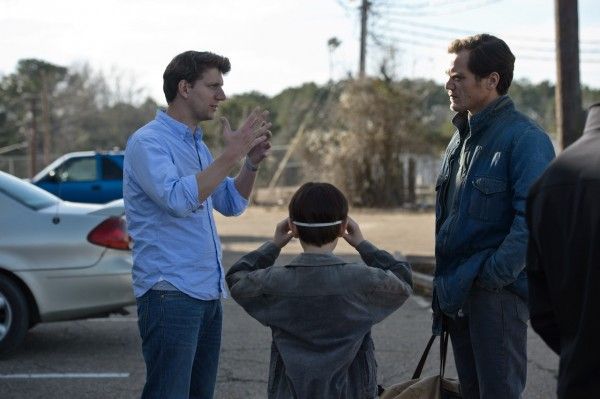Jeff Nichols recently released his fourth feature, Midnight Special, about two men who protect a young boy who has prophetic powers and a connection to a plain of existence invisible to all but him. For the fascinating first half or so of the film, the core of the film is in belief, and the entitlements that the faithful often gift themselves in the name of what they believe, whether via scripture, tradition, or simply out of instinct. The two men, played by Joel Edgerton and Nichols axiom Michael Shannon, are responsible for shooting a policeman early on in the film, and they are steadfast in their knowledge that it was the right thing to do, in the name of protecting a child who can decimate an entire suburban house just by opening his eyes at the right time of day.
On the face of it, there wouldn’t be a whole lot that connects this tale, which has its roots in the Spielberg of Close Encounters of a Third Kind and the Carpenter of Starman, with something as thrilling and menacing as Nichols’ breakout film, Take Shelter, but it’s in belief that the two films, as well as Nichols’ debut, Shotgun Stories, and Mud, the follow-up to Take Shelter, are intrinsically connected. The prophecy that is foreseen in Midnight Special is inherently a mystery, as the powers of the child, Alton (Jaeden Lieberher), are clear from about 30 minutes in but the goal, where these abilities will bring him and his believers, is unclear even in the film’s ending.
In Take Shelter, the conclusion of the prophecy – nothing short of the end times - is apparent early on but how these things will happen is unclear, even to the seemingly mad prophet himself, Curtis, played by Shannon as well. What is clear, in both cases, is that the prophecies are correct, that belief itself is a positive force but that interpreting faith can make people desperate and dangerous.
In the case of Midnight Special, this delineation between those who believe for the good of their family and, hopefully, society, and those who believe for their own sense of power and being chosen, is made very obviously. The religious faction led by Sam Shepard’s character, Calvin Meyer, are after Alton for their own sense of salvation, one that they are uniquely deserving of for following tenants that are largely kept a mystery in the film; Meyer tellingly gives Alton, who is increasingly at the center of his belief system, his last name rather than his actual family name. In contrast, Take Shelter pits those two perspectives against one another in one man, in Curtis, who at once feels a need to warn people in a frenzy but acts primarily to save his family from the storm that will assumedly wipe humankind off the face of the earth.
In both films, Shannon is the picture of a so-called true believer, a man who is guided by his faith first and foremost, and by his role as a father. In essence, Midnight Special is a variation on the tale of Mary and Joseph, with Kirsten Dunst’s character of Roy’s ex-wife filling the former role, and by extension, the film is a sort of fable. Take Shelter, in comparison, is something like a rejiggered version of the story of Noah, and in both cases, Shannon embodies the madness that comes from belief, the frustration and turmoil of being a man of the faith. And though Nichols’ vision of a hard-scrapping American South is often equally gorgeous and haunting, marked less by flashy or innovative camera movements than by a knowledge and comfort with the strange environs that mark the landscape of Arkansas, it’s Shannon’s performances, and the rest of the cast, that give Take Shelter and Midnight Special their evocative power.
This is even more true of Shotgun Stories, which depicts a familial feud between the offspring of the first marriage and second marriage of a recently deceased paterfamilias, with the former brood being led by Shannon’s fish-farm worker. Though the film boasts a more intimate portrait of low-income life in America than either Midnight Special or Take Shelter, the story doesn’t develop it’s perspective on poverty’s role in underlining concepts of both biblical and familial pride, leaning instead on familiar depiction of battling families sired by the same man. Again, the themes of paternity and faith roil beneath all the action, as Shannon’s Son Hayes is ironclad in his belief that his father was an abusive, neglectful son-of-a-bitch whereas the members of his second family treat him as if he were Saint Peter himself. The film gets quite a lot of mileage out of the scenery and the performers, with Shannon brooding and mumbling in surprisingly nuanced and evocative ways, but the film also evades images of outright violence and deceit, which leeches out the truly ugly imagery of the horrible acts that are done in the name of family.
The dangers of having such a strident faith in one’s kin and family is also the backbone of Mud, and it similarly has the timbre of a fable in its telling of the feud between the titular wanderer, played by Matthew McConaughey, and the family of the abusive man he murdered. The bedrock of the film is in Mud’s denial of paternity, as his victim’s acts led to the death of his would-be child while his girlfriend, Juniper (Reese Witherspoon), was carrying the baby, and those who hunt him, led by Joe Don Baker’s King Carver, are similarly in grief over the murder of kin, no matter how much of a villain he might have been. In this case, however, faith is less seen as tied to family as to figural family, as the film is told through the perspective of young Ellis (Tye Sheridan), who lives with his single mother (Sarah Paulson) and sees Mud as both a symbol of his lost father and of himself growing up without a male figure to look up to.
In this sense, Mud is easily Nichols’ most fascinating work to date, though Take Shelter is the more satisfying film up until it’s heavy-handed concluding image; Midnight Special is similarly tainted by the climactic reveal that strips the film of any ambiguity. It’s fitting, then, that Mud is the film that does not feature Shannon in a prominent role, as the film is more about the absence of fatherhood than the tenuous role and traditions of the father, and the power of belief in such a role. Not surprisingly, what’s missing from Nichols’ film is a more prominent role for mothers – women are largely an afterthought in Shotgun Stories, and remain underdeveloped in the films that follow, though Mud, again, offers the most detailed and evocative feminine presence out of all of them. In focusing so much on how belief in fathers, both on Earth and in the biblical sense, curses and drives boys and men, he sees only the masculine instinct that divides families, envisions only fragments of how parentage can corrode people. In effect, the writer-director largely evades confronting the feminine side of his stories, and as such, he sadly relegates his intermittently wondrous, occasionally insightful visions of belief to a primarily masculine practice.


